| Peru's
Central Highlands
|
|
| Home | After two weeks along the coast, south of Lima, where it was hot and dusty, I wanted to experience some of the mountain towns and see a bit more of the "real" Peru |
|
So I headed east from Lima to Tarma, which sits at 13,000 feet (4,000m) above sea level. I traded hot and dusty for cold and rainy. And no heat in the hotel rooms.
|
|
|
But the next morning I bellied up to the bar at Gloria's
sidewalk cafe, one of many that ring the local market
Instant coffee, known as coffee pasado. A concentrated liquid is made up in batches, then joined with hot water at serving time. Excellent |
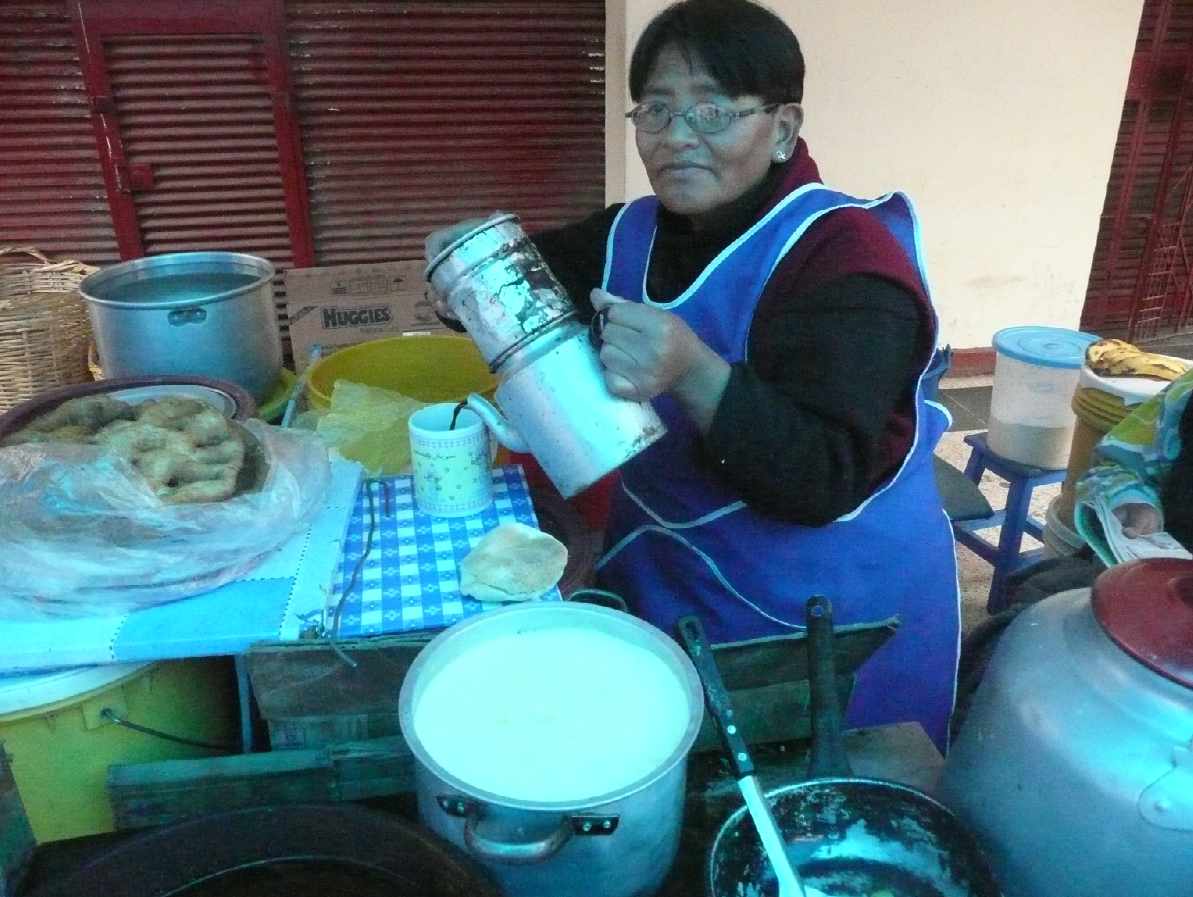
|
|
She also served what she called pancakes, which in Western Massachusetts would be called fried dough, in Seattle elephant ears |

|
|
Behind Gloria, lovely Hermelinda was sitting |
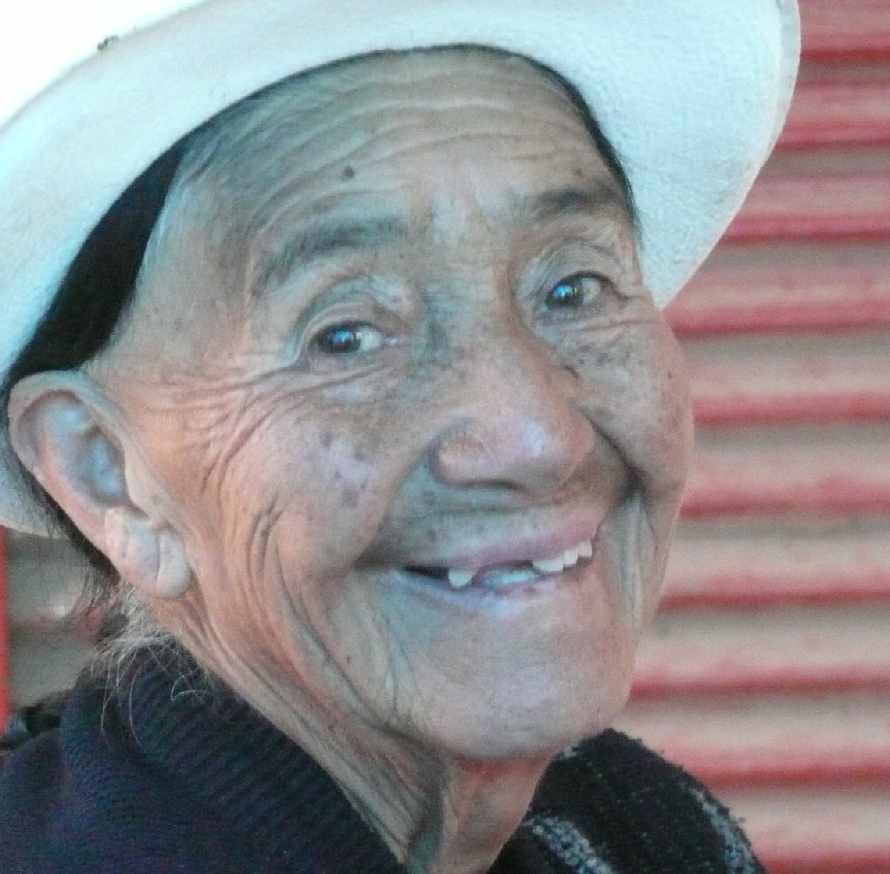
|
|
Strolling later in the day, I encountered this couple waiting to hitch a ride with a truck going to Lima. This is a very typical way to carry belongings in this region. |
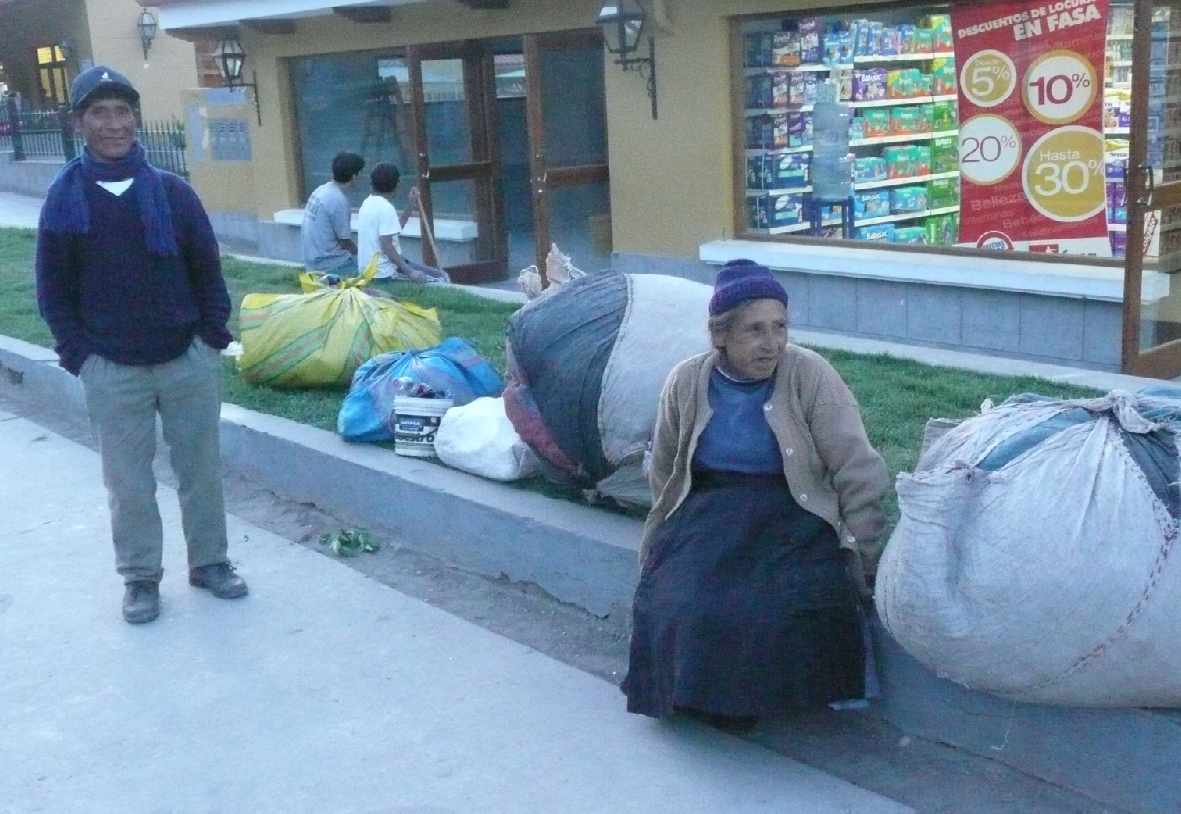
|
|
It was here I began to see many more of the indigenous population |
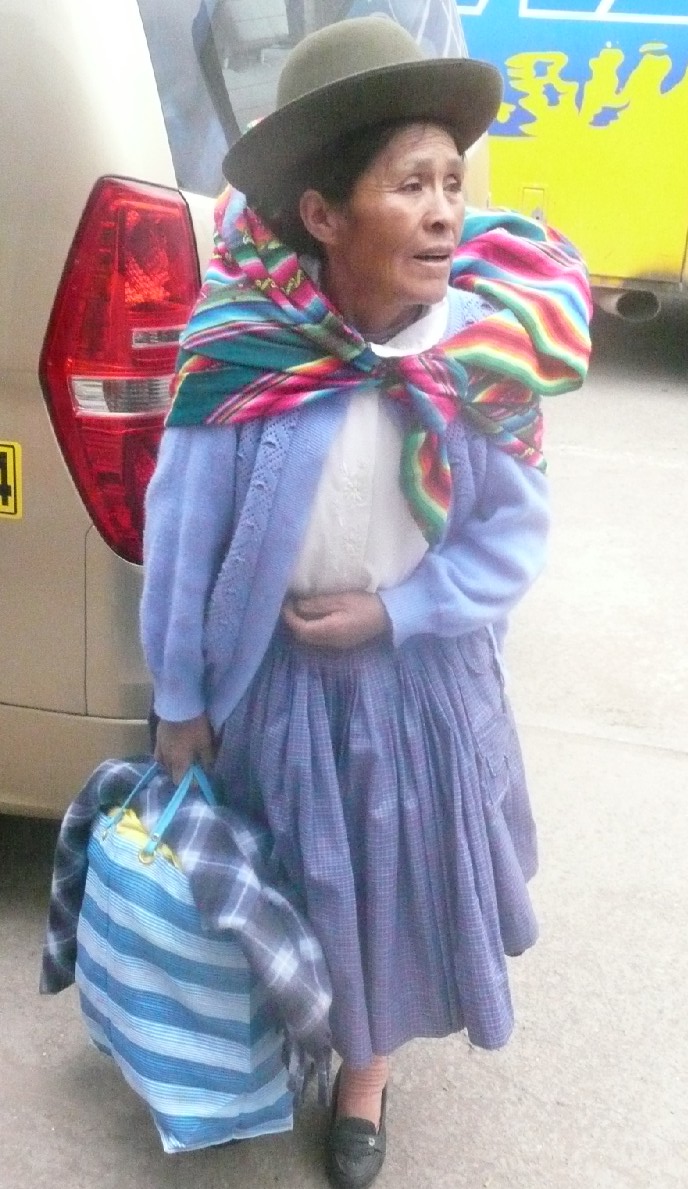
|
|
Meet Cecilia, from Cuzco |
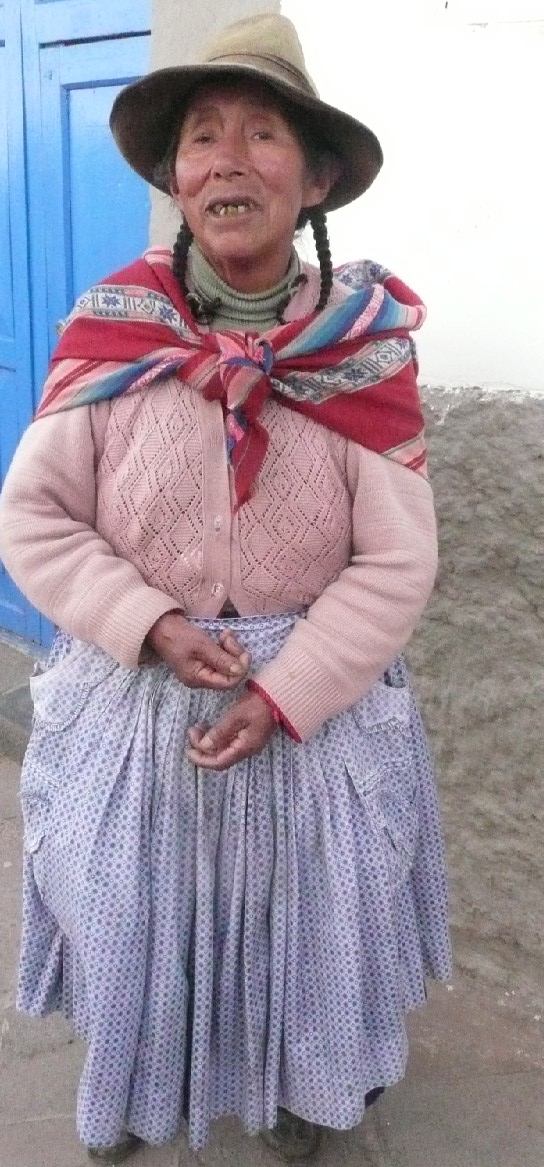
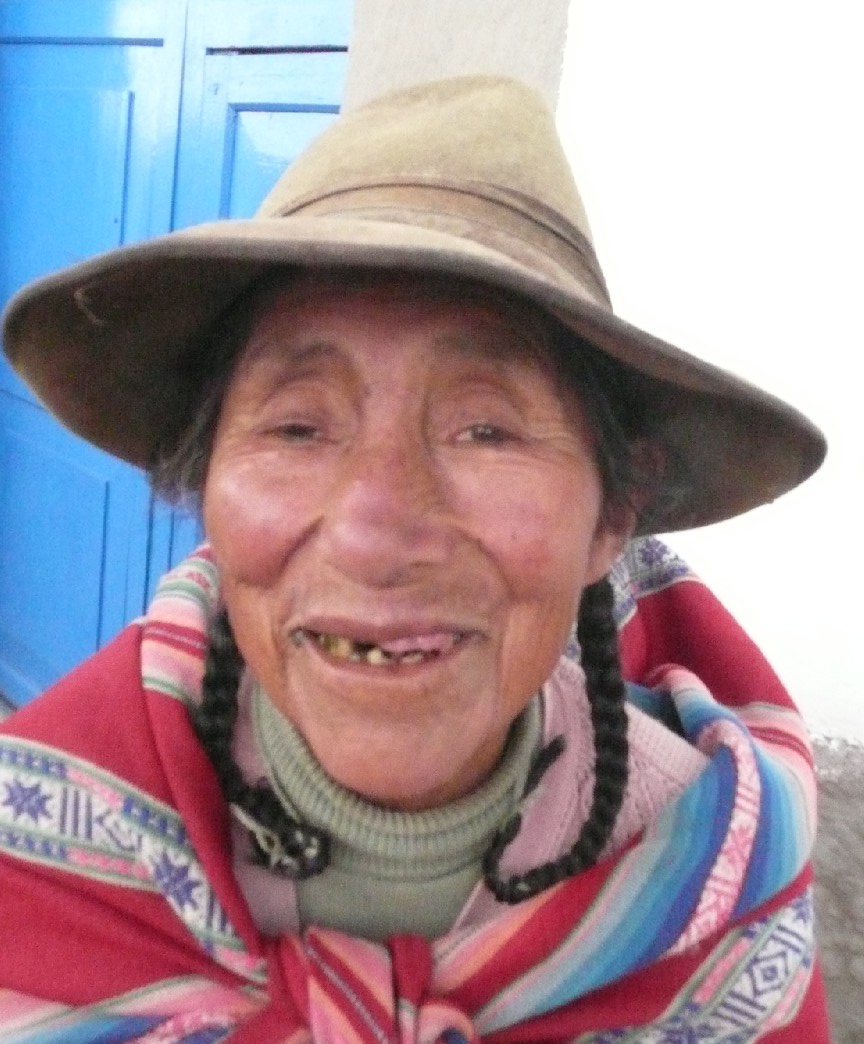
|
|
I never got tired of looking at their colorful, distinctive dress |
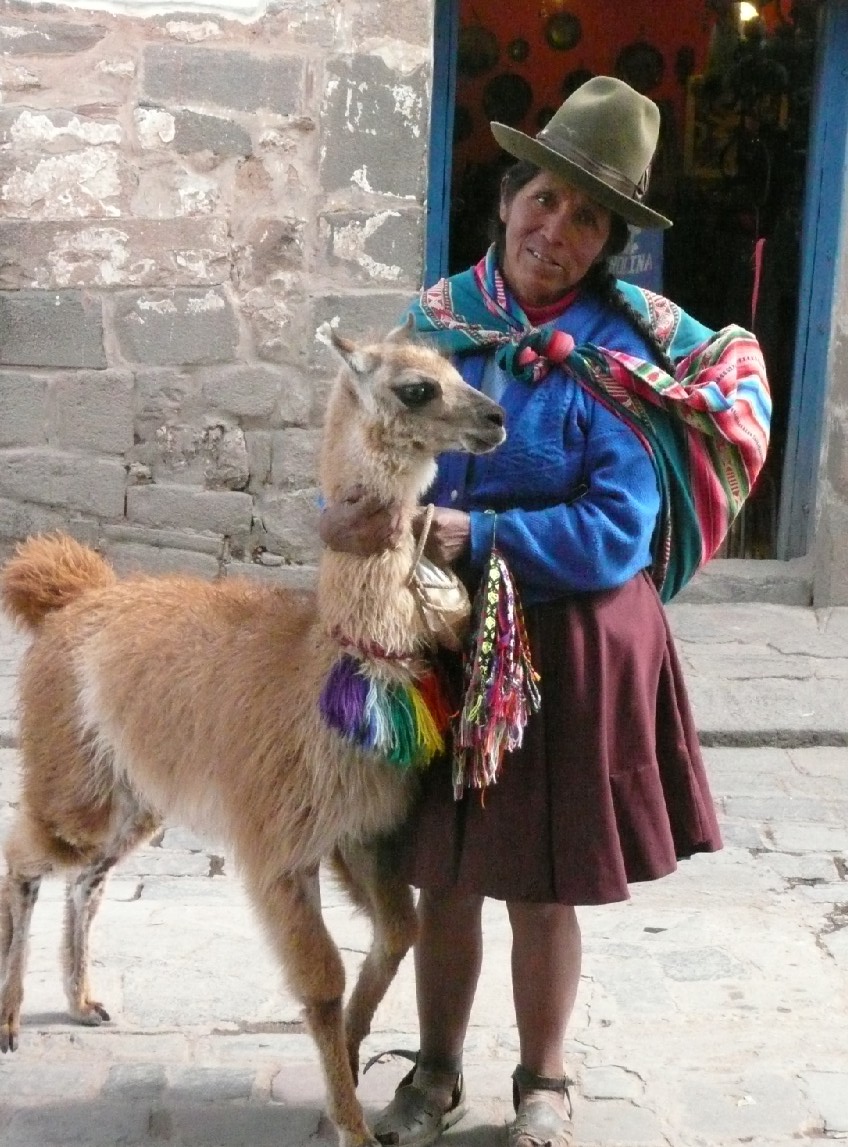
|
|
|
|
|
Occasionally they demanded payment for my taking their photo; I routinely gave it |
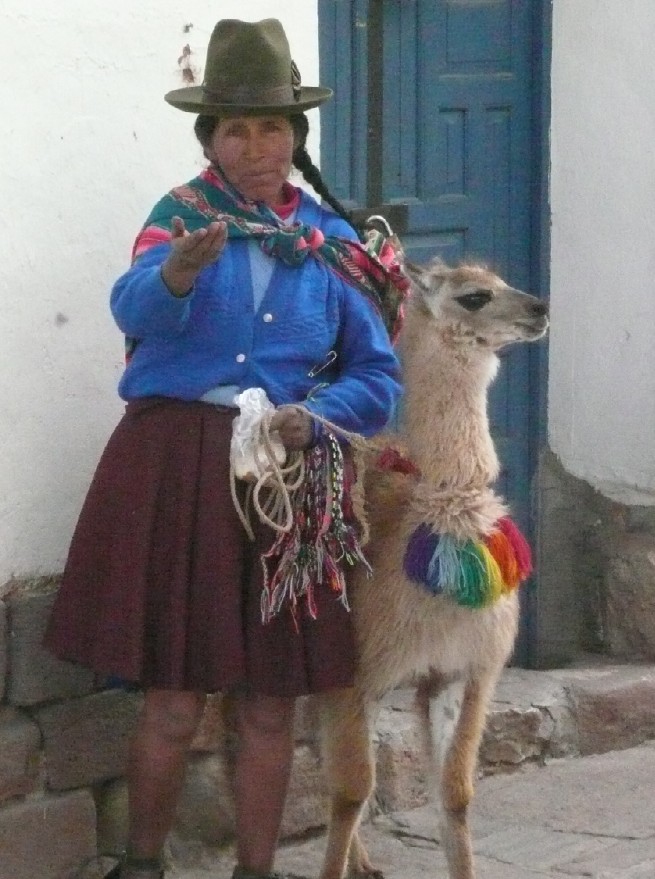
|
|
This woman approached my bus window, urging me to buy. I shook my head No. She pushed a pair of white booties through the window; I pushed them back |
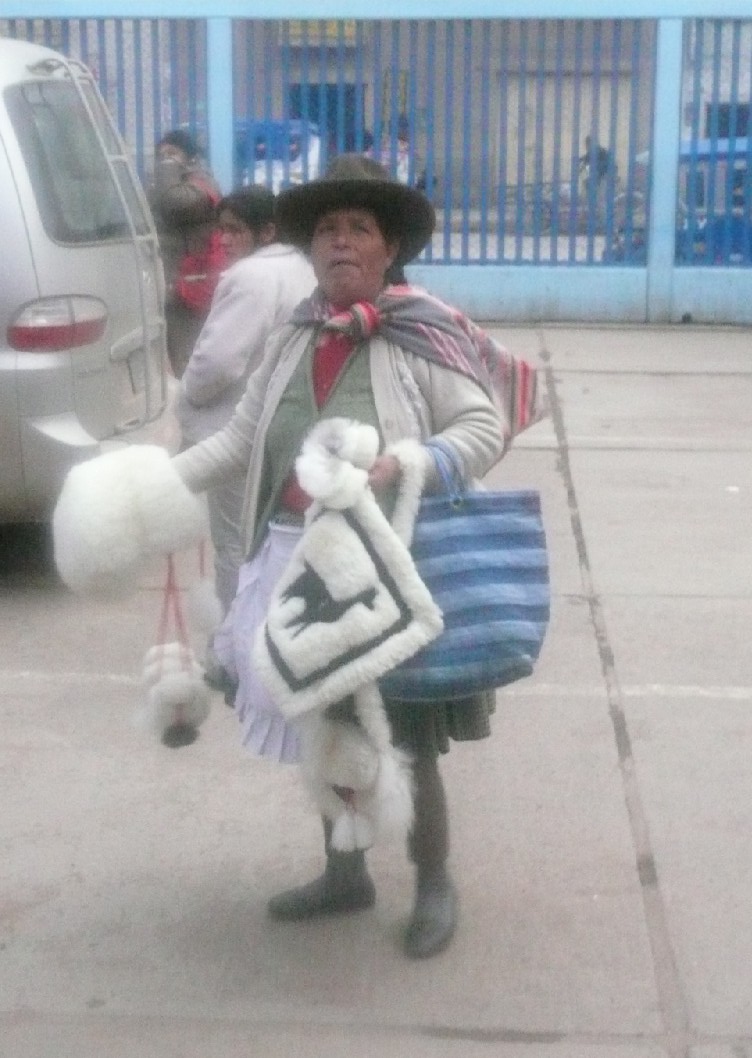
|
|
But she won. At $6usd for this cap, I couldn't go far wrong, could I? I was on an overnight bus back to Chile, and that night as we went through the mountains the bus was dreadfully cold. This purchase was fortuitous. |
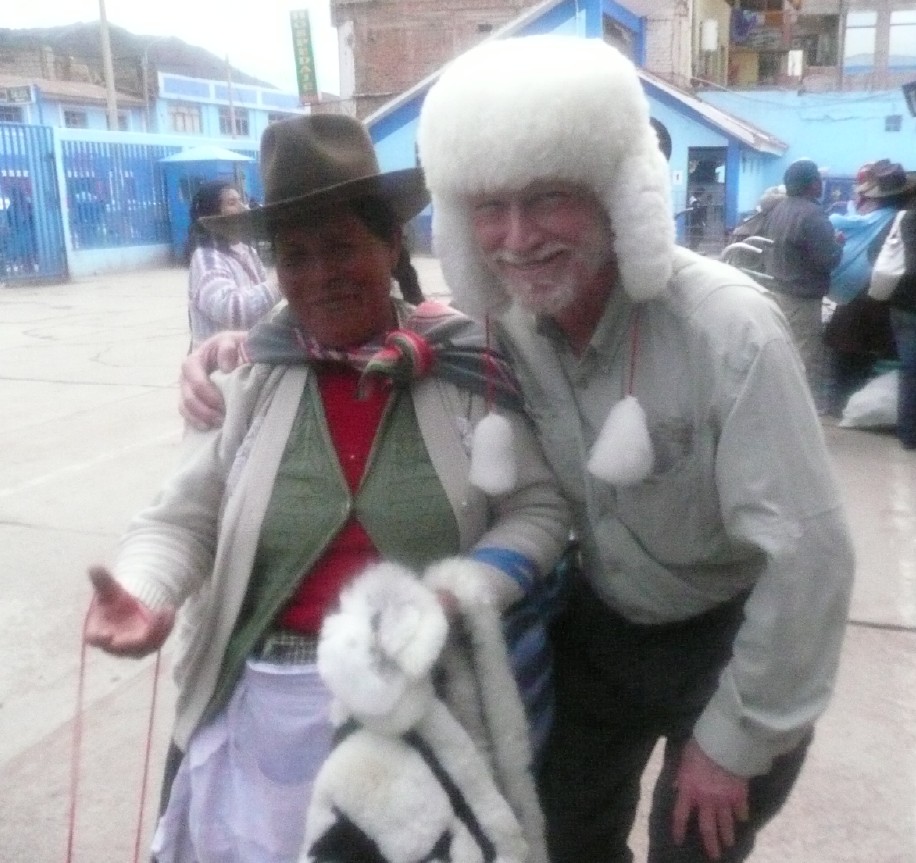
|
|
It seemed that everyone in Peru had something to sell; often swarming around buses when they stopped.
|
|
|
With upper levels of buses being so high, this is the way goods are marketed to the passengers. Grab what you want, drop the money and hope it lands in their hands.
|
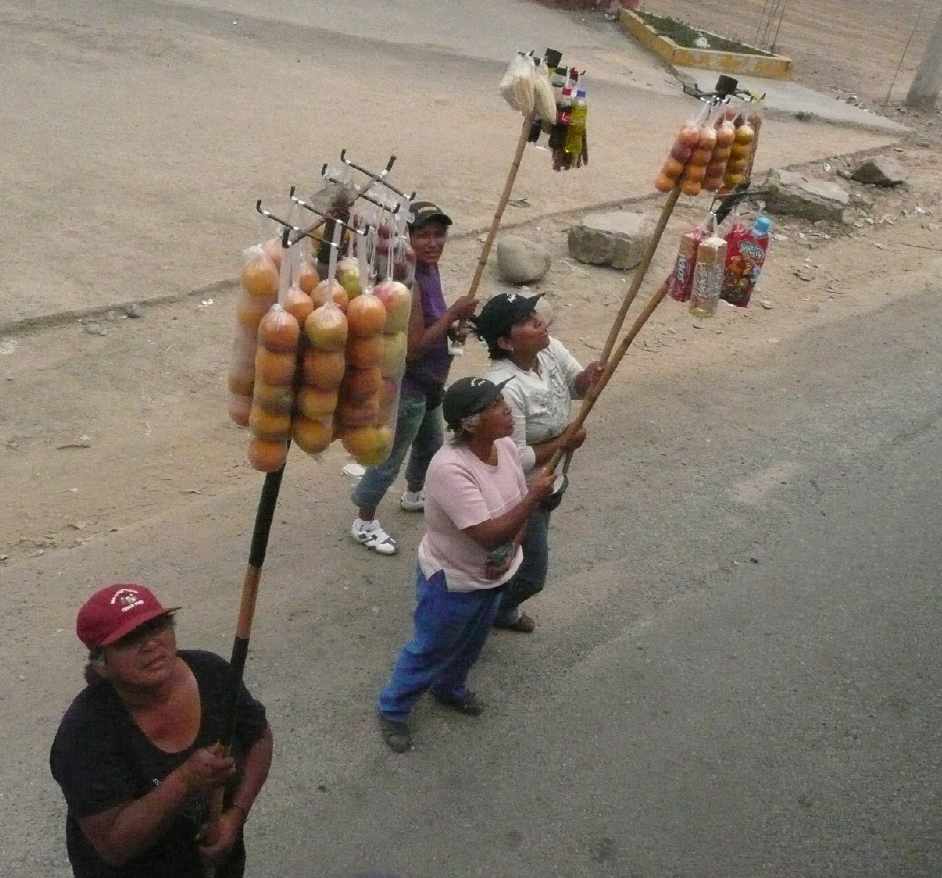
|
|
Whereas with these women, their wares were more colorful and identifiable. |
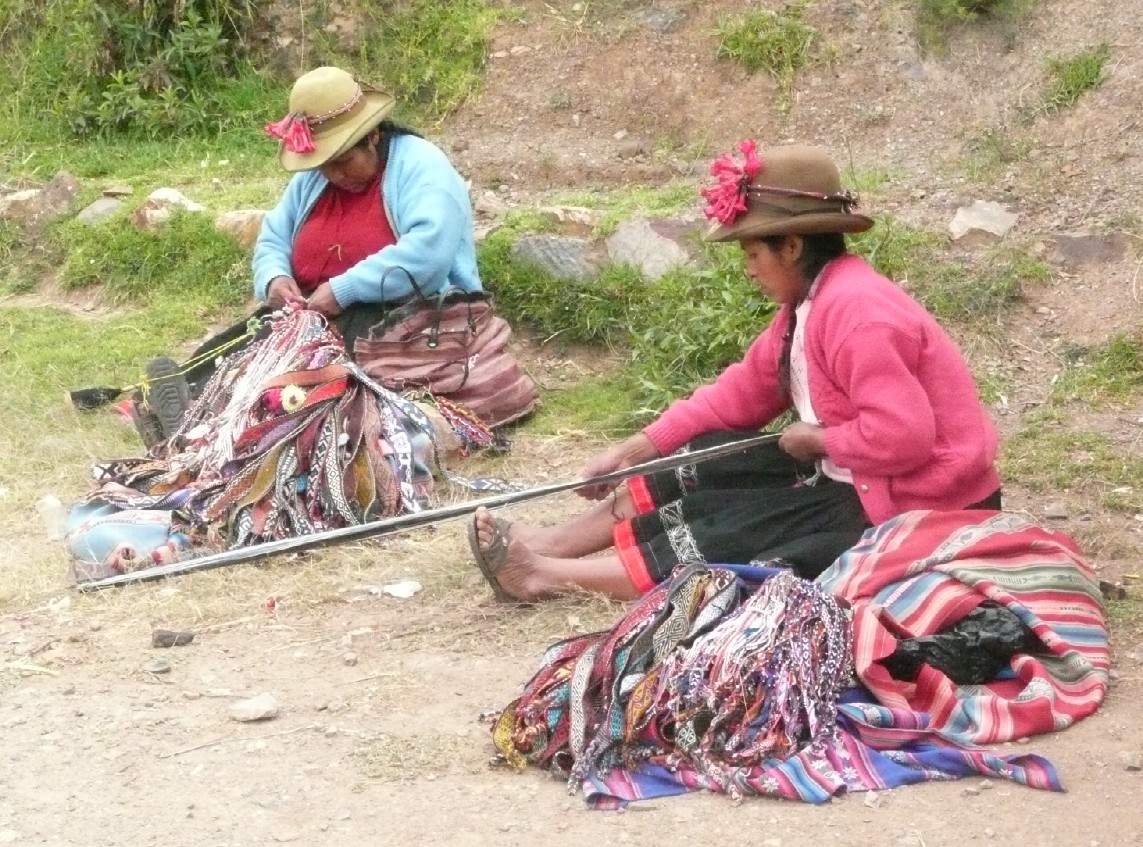
|
|
In many of Peru's cities, many streets are unpaved. Ayacucho, population 150,000 has many such areas |
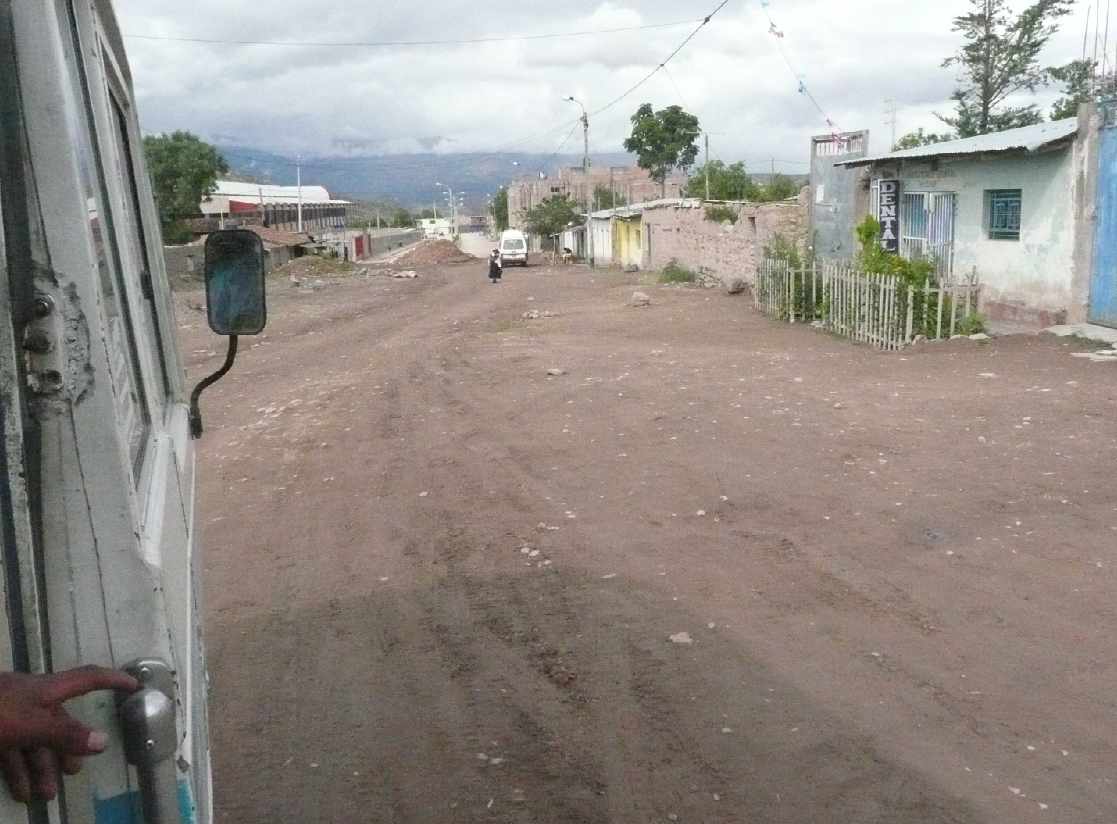
|
|
Some are barely navigable by car traffic |
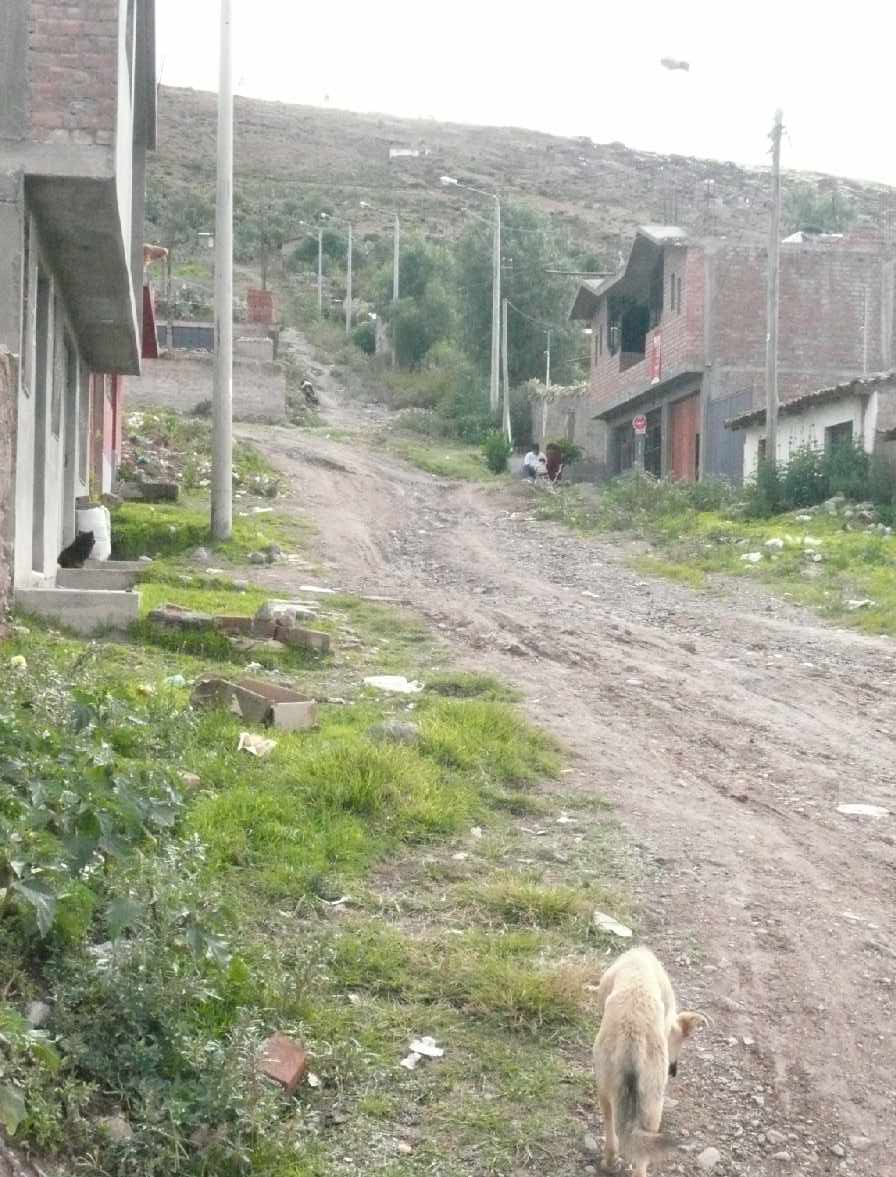
|
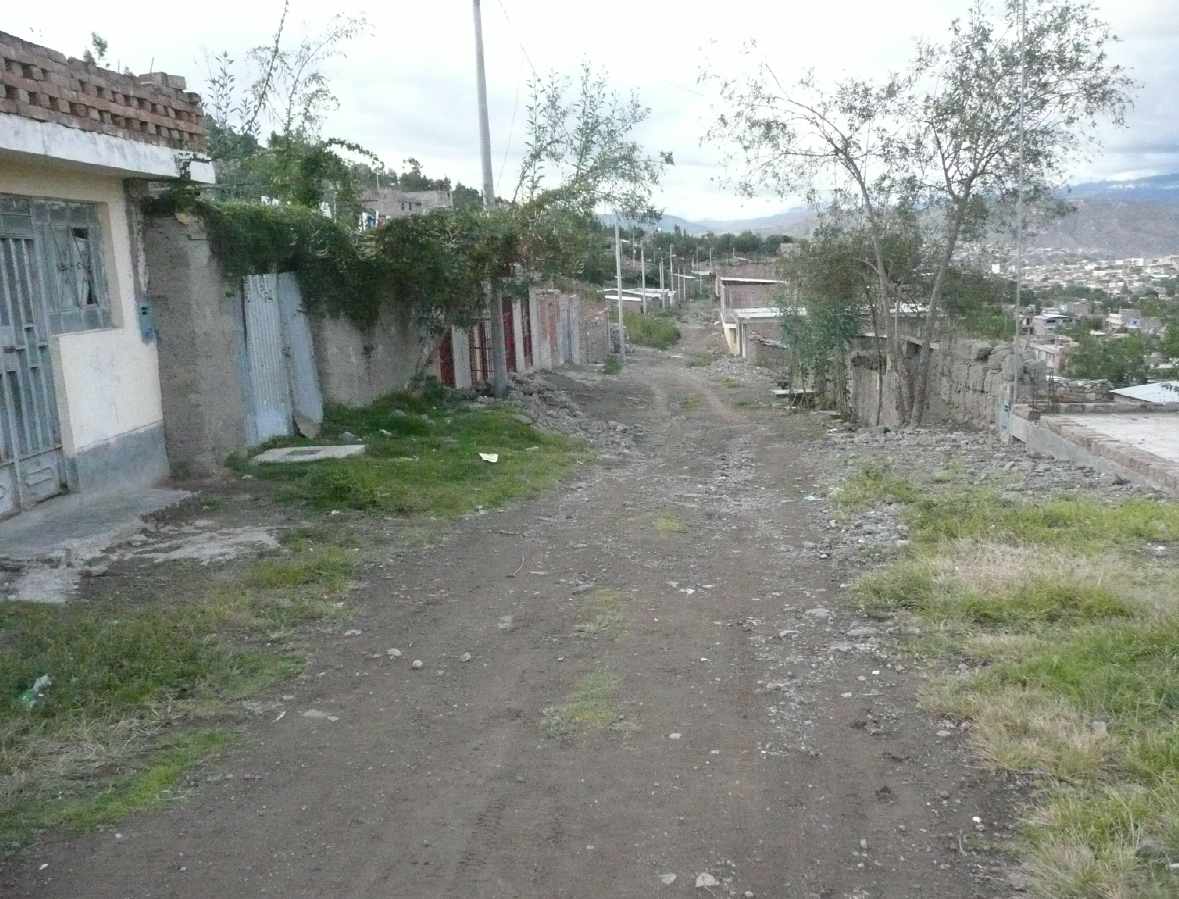
|
|
|
Walking one day in this barrio, I heard music coming from this unassuming little church.
|
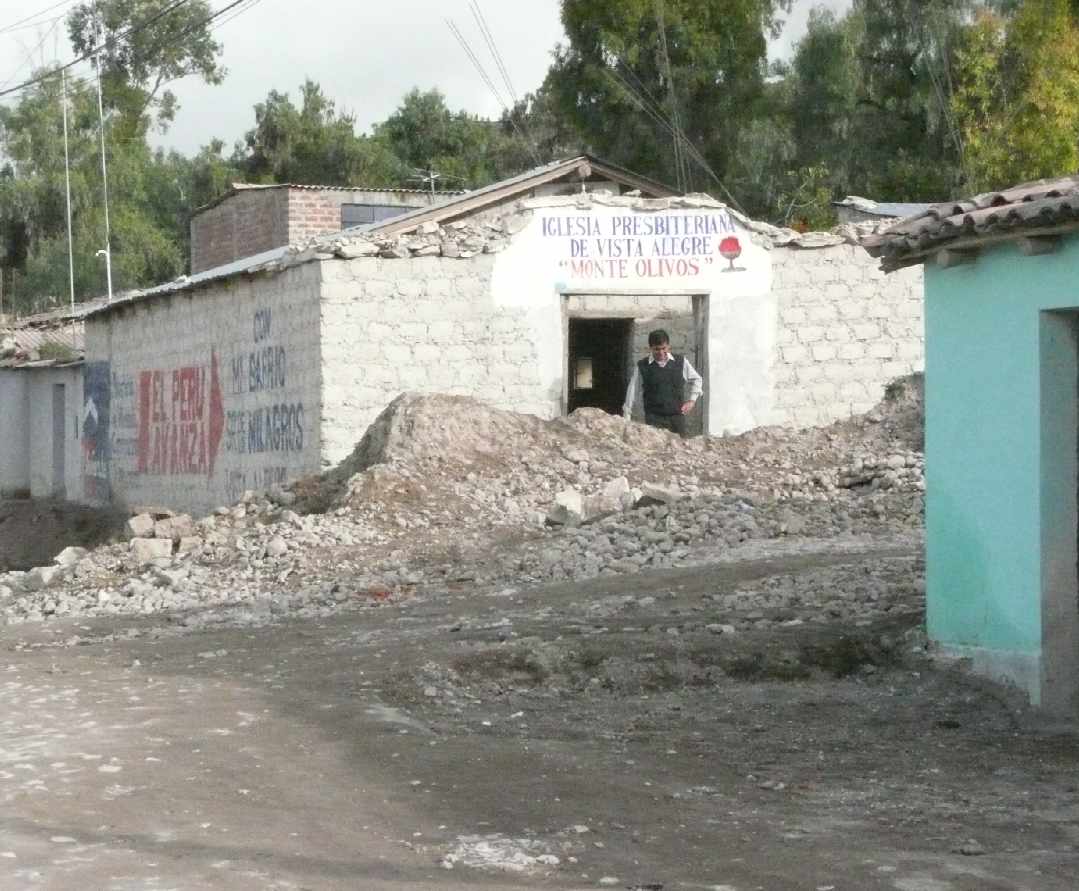
|
|
Being a bit nosy, I wandered on in. They invited me to come and sit down, but I declined. |
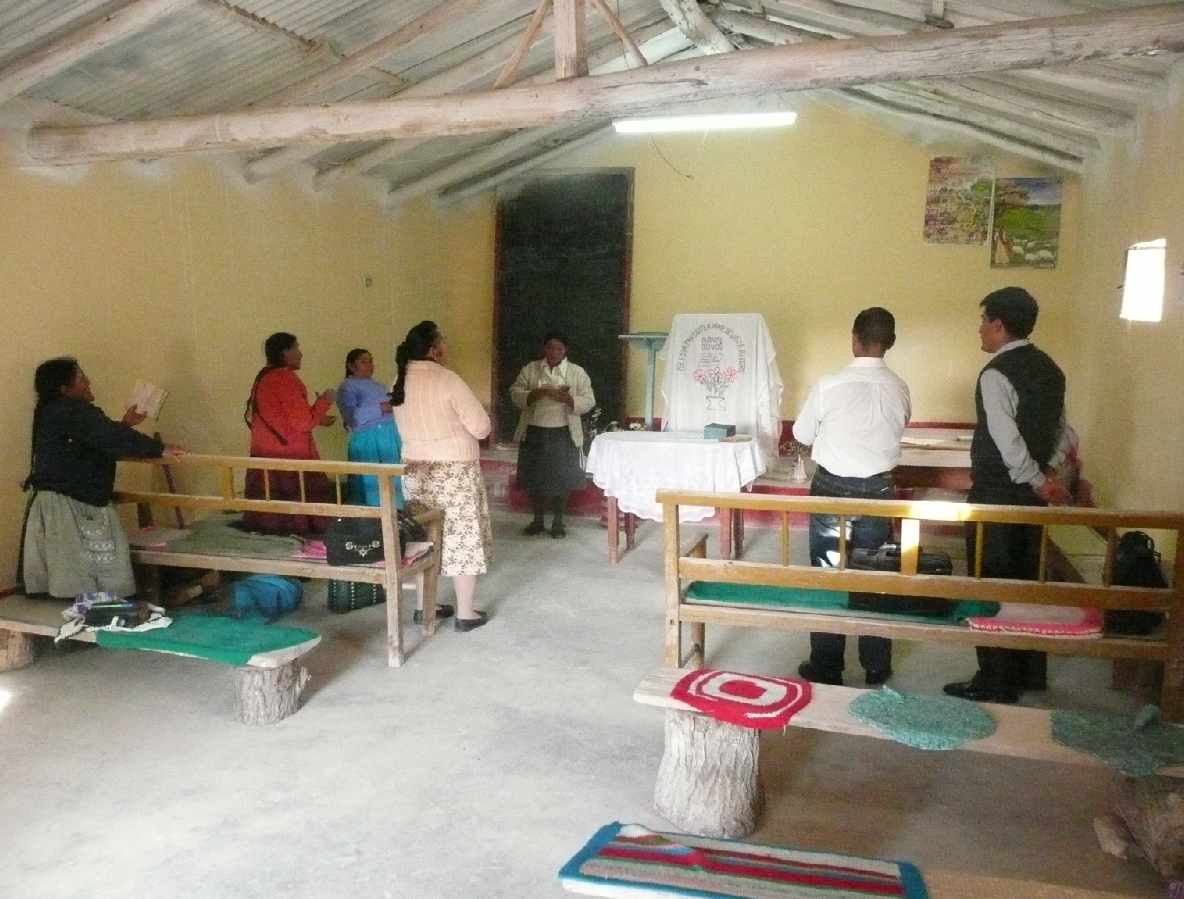
|
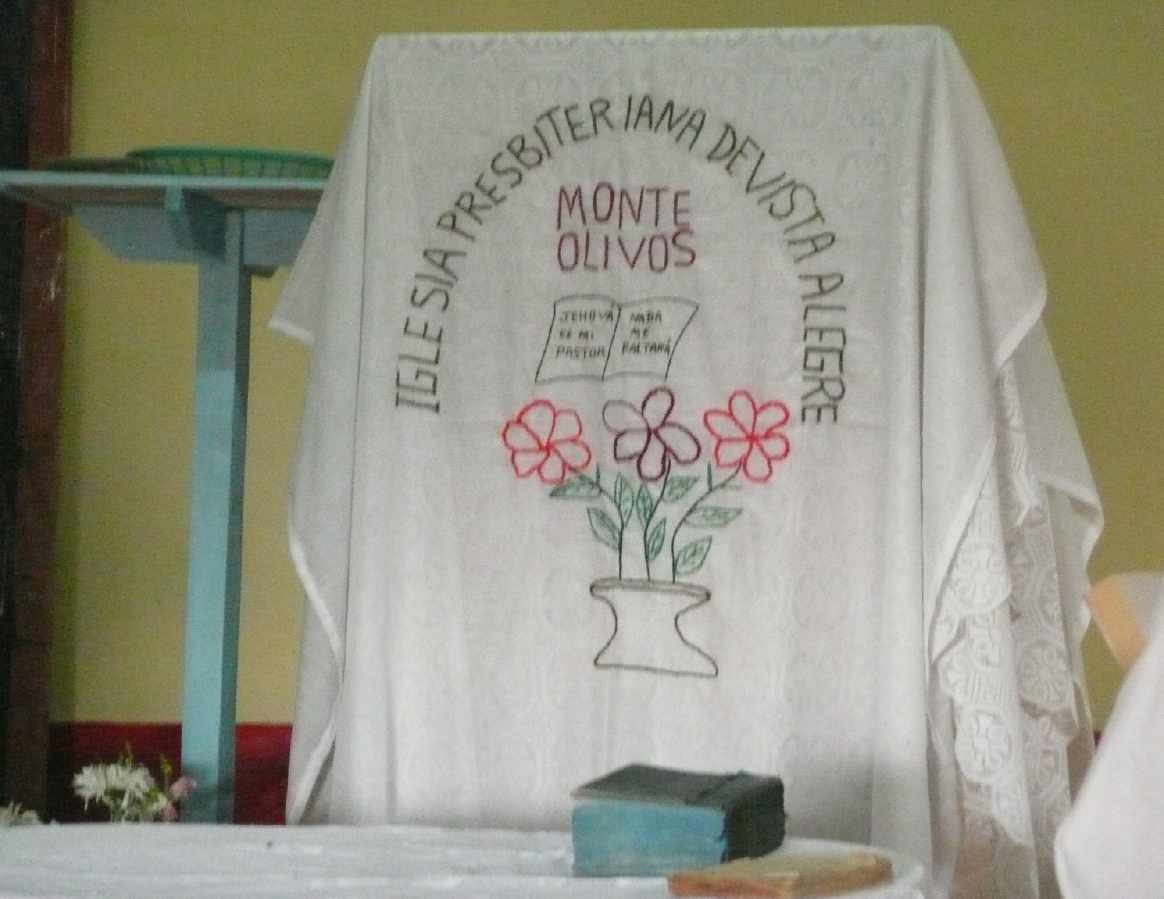
|
|
|
Simple construction, no sawed boards in sight |
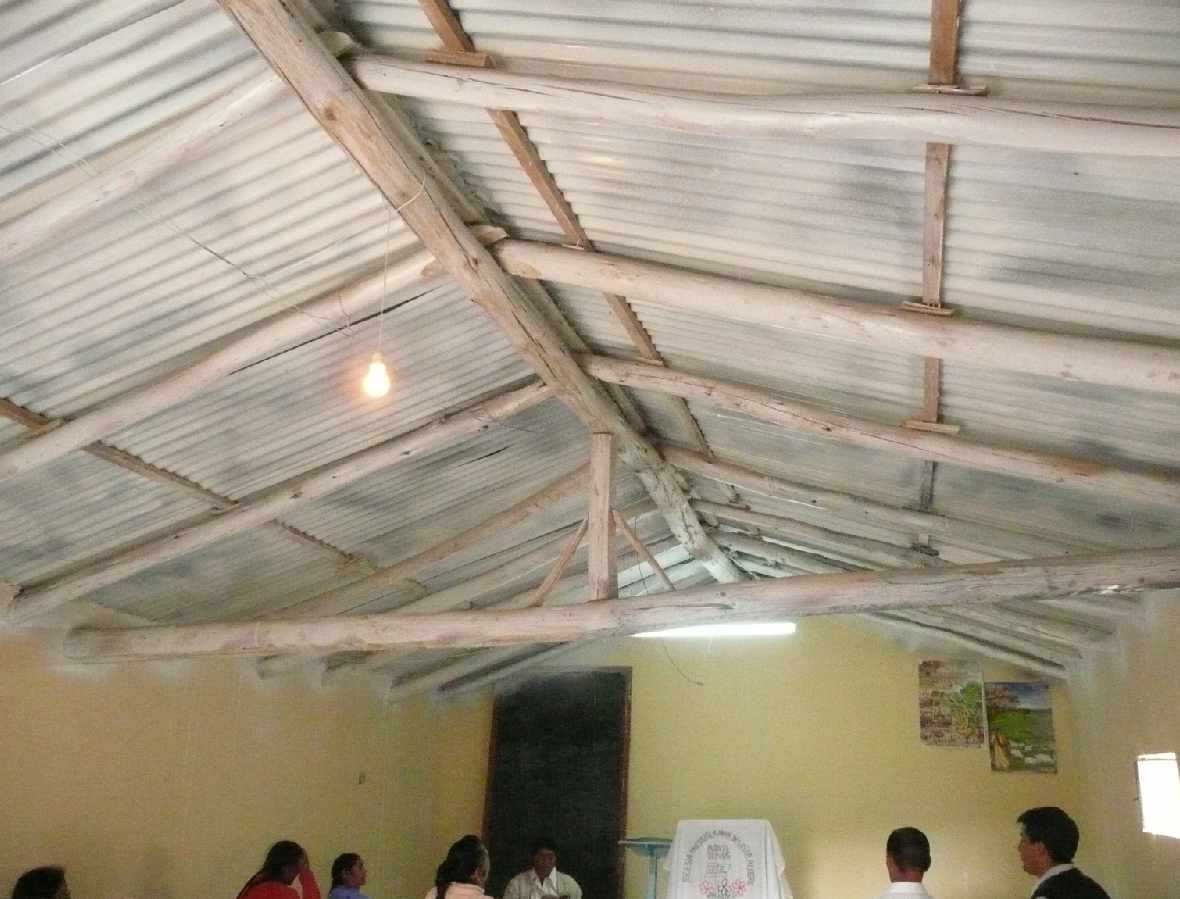
|
| Proceed to Central Highlands, Part 2 | |
| Peru blog index | |